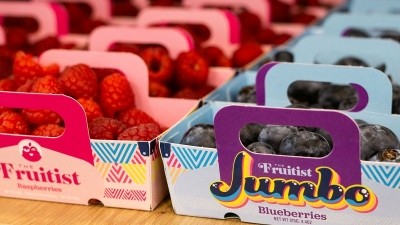Afresh rolls out platform to over 2,200 Alberstons’ meat, seafood departments to improve fresh-food inventories

“Managing a meat and seafood department is particularly challenging because of the financial implications of shrink. To meet these challenges, Afresh is leveraging AI at scale to support accurate ordering for complex cutting and production items. Additionally, we are excited about furthering our mission and continuing to support Albertsons’ ESG goal of reducing food waste,” Dain Charette, chief revenue officer at Afresh, shared in a press release.
Creating a tailor-made solution for grocery stores and fresh food
Afresh offers AI-based software designed to replace legacy fresh-food inventory management software, company co-founder Nathan Fenner told FoodNavigator-USA. The company's first product was store-level replenishment software that allowed operators to identify "how much of a perishable item to order into their storage day to optimize inventory," he added.
"We looked at the technology in the space like inventory management software, [and] we noticed that the technology was one, really legacy, and two, really had been built for things that come in boxes and have barcodes,” he said. “If we look under the hood of those technologies, they really actually were made to be horizontal solutions that serve a bunch of retail sub-verticals. The same software they were trying to use in grocery stores was the software running the supply chain of clothing companies.”
However, selling perishable foods isn't the same as selling other clothing, electronics, and other general merchandise category, and many retailers still had to rely on manual processes that created inefficiencies in the supply chain, resulting in food waste and missed sales opportunities, Fenner said.
In response, Afresh built an all-in-one platform that is “laser-focused on fresh food” that includes ordering, inventory management, and operation and merchandising capabilities, he said. Instead of relying on manual processes, grocers will have access to an automated inventory system and tools like pre-filled order quantities that will increase stock rates and reduce food waste, he added.
Afresh reported its platform helped reduce food waste in establishments by 25%, increased sales by 3%, and increased inventory turns by 7%. Additionally, 13% of current US produce is sold through the Afresh platform, the company added.
Grocers differentiate with the help of fresh foods
Not only does Afresh’s platform fill the need for a solution that’s “tailormade for the complexities” of fresh food retailing, but it comes at a time when more retailers are trying to attract consumers into their stores with the help of fresh foods, Fenner said.
“We started working on this company in 2016. Back then, all the growth was coming in fresh departments, but maybe more important than year-over-year growth, it was that fresh was becoming increasingly the critical strategic differentiator for grocers, as they competed not only with each other but also with pure-play online players. So, as you saw Amazon start to come into the grocery space, it became really, really important for grocers to distinguish their fresh offering.”
Albertsons will leverage the technology to boost in-stock rates for perishable high-value items like poultry through AI-based recommendations and use prefilled order quantities for items that might not sell as quickly like prepackaged bacon.
“At Albertsons, we strive to create a distinctive experience in fresh foods, and our meat and seafood departments are a key component in this strategy. Afresh has enabled our associates to make smarter decisions daily that keep customer favorites in stock and ensure that we are offering them the best quality, freshest product. The Afresh platform also helps our stores to significantly reduce food waste as Albertsons continues to make progress toward our goal to have zero waste going to landfill by 2030,” Susan Morris, EVP and chief operations officer for Albertsons, shared in a press release.





















